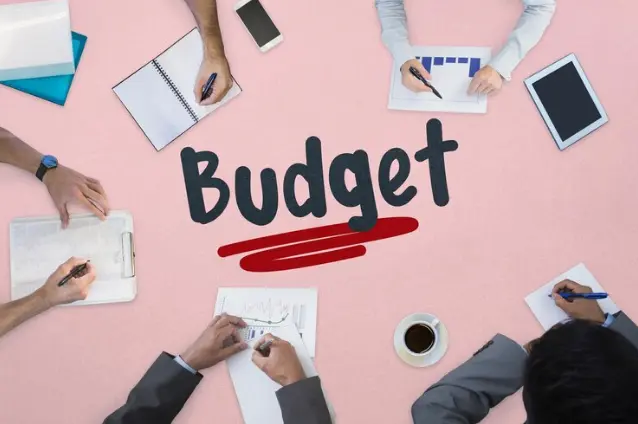How to manage a budget in business

Budgeting is about making financial choices that lead to sustained development, not only about slashing expenses. Learning how to manage a budget is essential whether you’re a well-established company or a little startup.
How to Run a Business Budget
Define Your Financial Goals
Establish your financial objectives clearly before you start budgeting. What goals do you have in mind? What goals are you trying to achieve—higher earnings, lower costs, or more resources for growth?
Create a detailed budget plan
The foundation of effective budget management is a well-organized budget plan. Describe your sources of income and all of your projected out-of-pocket expenditures, both fixed and variable.
Distribute Resources Sensibly
Sort your costs into categories according to how important they are to your company’s goals. Invest resources in sectors that have a direct impact on profitability and growth.
The Process of Budget Management
Examine Your Budget Frequently
Budget management is a continuous activity. To make sure you’re on track, review your budget often and make any necessary modifications.
Find Possibilities for Cost-Cutting
Always look for methods to save expenses without sacrificing the quality of your goods or services.
Track Cash Movement
Make sure you have enough money to pay for your expenditures by keeping a careful check on your cash flow.
Techniques for Effective Budget Management
Budgeting Based on Zero
Every budgetary period should begin from anew, with each spending justified. This method may assist in cutting down wasteful expenditure.
Make Use of Past Data
Use historical financial data analysis to guide your budgetary choices. Trends from the past might provide insightful information.
Get Rolling Budgets in Place
Consider making a rolling budget, which is more flexible and spans shorter time periods, as opposed to an annual one.
The Value of Effective Budget Management
Strategic in nature, effective budget management involves more than simply financial considerations. You may use it to make data-driven choices that support your corporate objectives.
Money-Saving Budgeting Tips
Adopt Technology
Make use of applications and budgeting tools to expedite the procedure and improve your financial visibility.
Bargain with Vendors
Never be afraid to bargain with your vendors for better terms. Little saves may build up to big savings.
Employee Cross-Training
Employees who get cross-training will be able to fill a variety of positions, which will cut down on the requirement for new hires.
How to Handle a Project’s Budget
Dissect Expenses
To better manage expenditures for project-specific budgets, divide them up into smaller parts.
Set Up a Reserve Fund
Your project budget should include a contingency reserve to cover unforeseen costs.
Techniques for Managing Departmental Budgets
Department Heads Involved
Involve department leaders in the budgeting process to guarantee alignment with departmental objectives and to get insightful information.
Make sensible goals
Together with department leaders, establish attainable budget goals that strike a balance between performance and cost management.
Keeping Tabs on and Recording Expenses
Determine any departures from the budget plan by keeping a close eye on your spending on a regular basis. Resolve problems quickly to prevent financial losses.
Making Any Budget Adjustments
Remain adaptable and willing to tweak your budget as needed. The secret to long-term financial sustainability is adaptability.
Preventing Typical Budgeting Errors
To improve your budgeting process, take note of frequent budgeting errors include underestimating expenditures or overcommitting resources.
Purchasing Accounting Software
For more precise budgeting, think about making an investment in sophisticated financial software that has capabilities like forecasting and scenario planning.
Participation of Employees in Budget Management
Involve staff members in the budgeting process and encourage them to submit suggestions for cost savings. Their observations may result in large cost reductions.
Financial Management Instruments and Materials
To improve your budgeting abilities, investigate the range of accessible budget management tools, templates, and instructional materials.
In summary
In conclusion, one of the most important abilities for company owners is effective budget management. You may direct your company toward long-term financial success, save money, and manage resources effectively by using the strategies and tactics described in this book.
Q&As
Q1. How frequently should I examine my financial plan?
It’s critical to examine your budget on a regular basis. We advise monthly evaluations, although the frequency might change based on the demands of your company.
Q2: Are small firms able to gain from budgeting software?
Yes, small firms may benefit greatly from budgeting software. It offers insightful information and streamlines the budgeting process.
Q3: In a budget, what distinguishes fixed from variable costs?
Rent is an example of a fixed cost; on the other hand, variable costs, like utilities, change depending on the activity in your firm.
Q4: What is the best way to include my staff in managing the budget?
Encourage your staff to share ideas and communicate openly with one another. Their suggestions may result in creative ways to save costs.
Q5: Where can I get trustworthy tools and templates for budgeting?
Many of the budgeting templates and tools that you can get online are either free or have a little cost associated with them.





